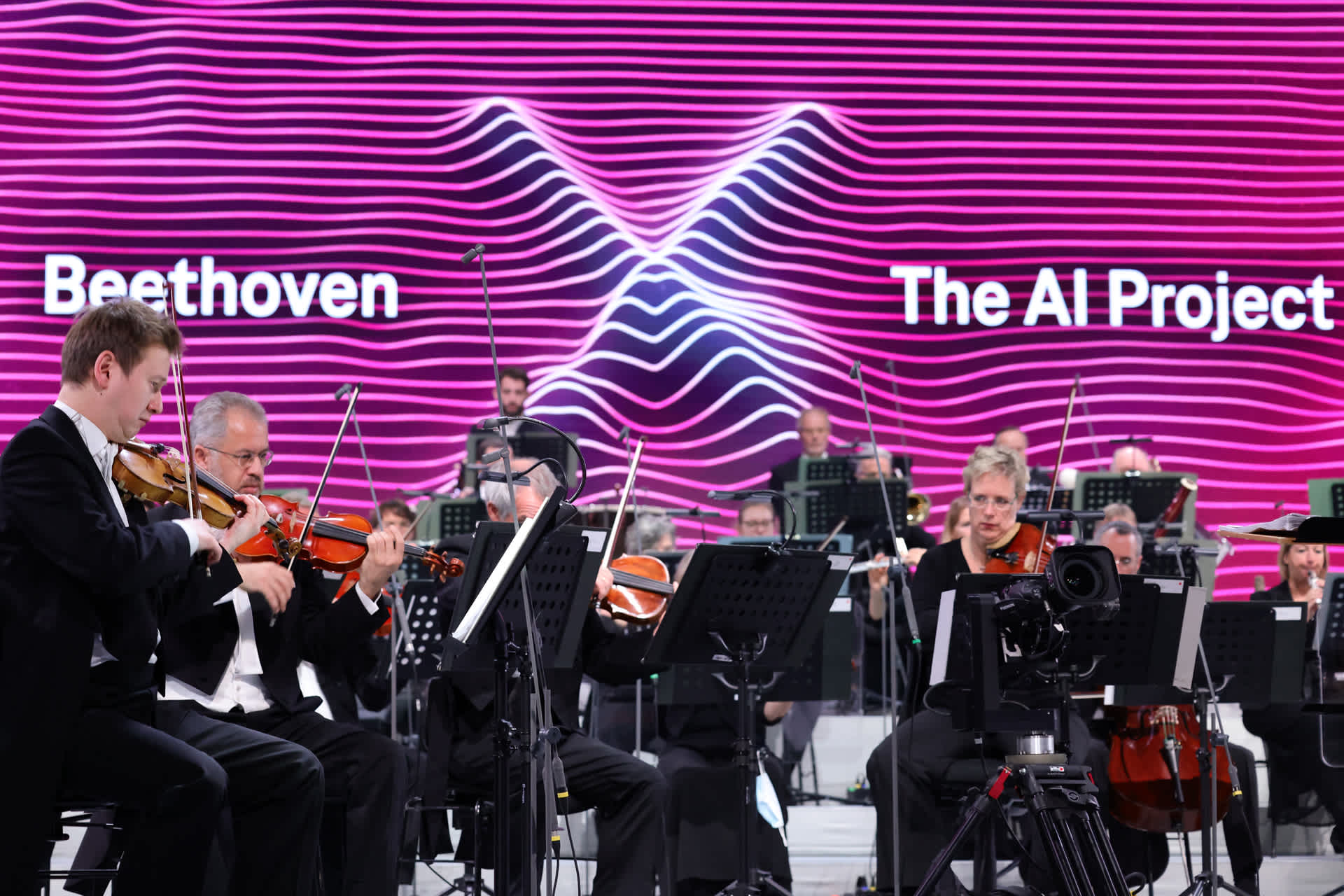Impossible Music

In November 2019, the musician Grimes made a bold prediction. “I feel like we’re in the end of art, human art,” she said during a podcast interview. With AI, or artificial intelligence, she said, computers will “be so much better at making art than us.”
There are lots of musicians who don’t feel that AI will end human art. They feel as if it could increase creativity. Over the past several years, several prominent artists have worked with AI to push their music in new and unexpected directions. Meanwhile, musicians and researchers all over the world are developing tools to make AI more accessible. Musicians working with AI hope the technology will become an essential part of everyday musical creation.
“It’s provided me a sense of relief and excitement that not everything has been done,” Arca, a music producer, told TIME. “It opens up a world of possibilities.”
Music and AI
Music and computers have long been intertwined. In 1951, Alan Turing built a machine that generated three simple melodies. In the 1990s, David Bowie started using a digital lyric randomizer for inspiration. At the same time, a professor trained a computer program to write new compositions in the style of composer Johann Sebastian Bach. When an audience listened to its work next to a genuine Bach piece, it couldn’t tell them apart.
Progress in AI music has rapidly accelerated, thanks, in part, to research teams at universities and investments from major tech companies. In 2018, François Pachet, a longtime AI music pioneer, produced the first pop album composed with artificial intelligence. In 2019, singer-songwriter Holly Herndon made an album on which she harmonized with an AI version of herself.
But while technology has come a long way, many say we’re still far from an AI creating hit songs on its own.
Pushing Music Forward?
One of the main concerns people have about AI in music is this: Could it flatten music until every song sounds more or less the same?
Electropop musician Claire Evans says pop music already follows specific formulas, even without the use of AI. It’s the job of forward-thinking musicians, she says, to use AI to explore uncharted territory they could not have reached on their own. AI “[gives] us the skills to break out of our own habits,” she says.
Pachet says we’re still very much in the early days of experimentation with AI music. “The amount of music produced by AI is very little compared to the activity on the research side,” he says. “We are still in the very beginning.”
When more AI creations are released, there will be legal battles. Existing copyright laws weren’t written with AI in mind. Some are worried that musicians would have no legal recourse against a company that trained an AI program to create soundalikes of them, without their permission.
But until those issues arise, people are working to get AI into the hands of as many curious music-makers as possible. CJ Carr, an AI musician, says, “I want to see 14-year-old bedroom producers inventing music that I can’t even imagine.”
This story was originally published in TIME on February 5, 2020.


